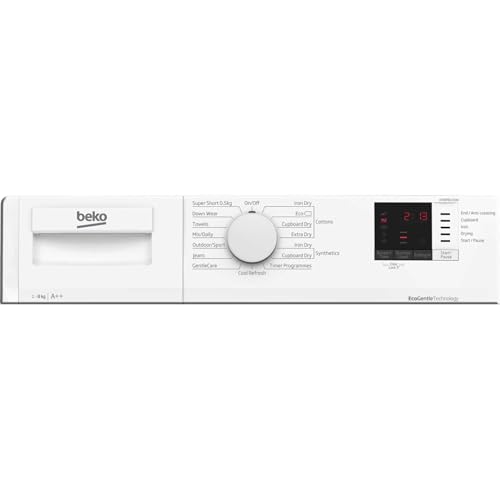Understanding Telescopes: The Basics We Need to Know
What is a Telescope?
A telescope is an optical instrument designed to make distant objects appear closer and clearer. Imagine watching a football match from the stands, but being able to zoom in as if you are right by the touchline—the thrill of seeing the action up close is what a telescope offers. It collects light from celestial objects, such as stars and planets, allowing us to observe them in detail. Whether you’re peering at the craters of the Moon or the rings around Saturn, telescopes open up a universe we can explore.
How Do Telescopes Work?
At the core, telescopes enhance our vision by gathering and magnifying light. They operate similarly to the way our eyes work but with greater efficiency. We can think of telescopes as giant eyes—they collect more light than we can with our own eyes, which in turn helps us see farther into space. The key components include a lens or mirror that focuses light and an eyepiece that magnifies the image. The more light a telescope can gather, the clearer and more detailed the images we can observe.
Types of Telescopes: Finding the Right Fit for Us
Refractor Telescopes: A Clear Choice
Refractor telescopes use lenses to gather and focus light. They’re often regarded for their excellent image quality and low maintenance needs. Picture looking through a pair of binoculars—they have lenses just like refractors and can deliver sharp images. This type of telescope is great for beginners who want to focus on viewing planets and the Moon because they are easy to set up and use.
Reflector Telescopes: Big Aperture, Big View
Reflector telescopes, on the other hand, use mirrors to collect light. Imagine a smooth, shiny surface reflecting your image back at you—that’s how these telescopes work. They generally provide a larger aperture at a lower cost compared to refractor telescopes, making them suitable for deep-sky observations like galaxies. If you’re excited about exploring the vastness of the universe, this option may be for you.
Compound Telescopes: Best of Both Worlds
Compound telescopes blend the strengths of both refractors and reflectors, combining lenses and mirrors to achieve superior optical performance. They are compact and versatile, which makes them a great all-rounder. If you’re seeking a telescope that can handle various types of observations, from planetary views to deep-sky objects, a compound telescope might be your ideal partner in exploration.
Key Features to Consider: What Matters Most
Aperture: The Size Matters
One of the most critical features to consider is the aperture, or the diameter of the telescope’s main lens or mirror. Larger apertures allow more light to enter, which means brighter and clearer images. Think of it like a camera lens; a bigger lens captures more detail in low light. If we want to see fainter stars or clearer planetary details, we should look for a telescope with a larger aperture.
Mounting Type: Stability is Key
The type of mount a telescope has can determine how easy it is to use. There are mainly two kinds: altitude-azimuth mounts, which move up and down as well as side to side, and equatorial mounts that allow tracking celestial objects as they move across the night sky. If we’re planning to spend hours stargazing, an equatorial mount can make our experience more enjoyable.
Portability: Take it Anywhere
If we envision ourselves taking our telescope to remote locations for uninterrupted views, weight and size are essential considerations. A lightweight and compact model is easier to transport and set up. Whether we’re heading to a dark sky area or going camping, choosing a telescope that won’t weigh us down is a smart move.
Expert Recommendations: Our Top Picks for First-Timers
Best Beginner Refractor: SkyWatcher 70/700
For those new to astronomy, the SkyWatcher 70/700 refractor strikes an ideal balance between quality and ease of use. Its portable design and straightforward setup make it perfect for beginners. The lens provides clear images of the Moon and planets, ensuring a pleasant experience as we start our stargazing journey.
Best Beginner Reflector: Orion SkyQuest XT6
If reflectors are more appealing, the Orion SkyQuest XT6 is a fantastic choice for novices. Its 6-inch aperture gathers plenty of light to explore deep-sky objects, allowing us to witness the beauty of the universe clearly and vividly. Plus, its simple design means we can start stargazing right out of the box.
Best Compound Telescope: Celestron NexStar 5SE
For those who wish to invest in a versatile telescope, the Celestron NexStar 5SE offers a compact design with impressive optics. It’s perfect for those who want to explore both planets and deep-sky objects, and its computerized mount makes locating celestial targets a breeze. With this telescope, we can enhance our astronomical pursuits without a steep learning curve.
Caring for Your Telescope: Tips for Longevity and Performance
Regular Cleaning: Keep it Clear
Keeping our telescope clean is vital for optimal performance. Regularly check lenses and mirrors for dust or smudges. Using a soft lens brush or microfiber cloth can help us avoid scratches while ensuring that our views remain bright and clear. We should handle all optical components with care to preserve the quality of our images.
Safe Storage: Protecting Your Investment
Proper storage goes a long way in maintaining our telescope’s longevity. We should store it in a dry, cool place, ideally in a carry case or with protective covers on. This will prevent dust accumulation and protect sensitive components from damage. Treating our telescope with respect ensures it serves us well for years to come.
Routine Maintenance: A Little TLC
Lastly, conducting routine checks on our telescope can help us spot any issues early. Ensure mounts are functioning smoothly, and adjust any loose screws. Investing just a little time in maintenance will make a significant difference in performance and longevity. Taking good care of our telescope means we will enjoy many nights of exploring the night sky.































